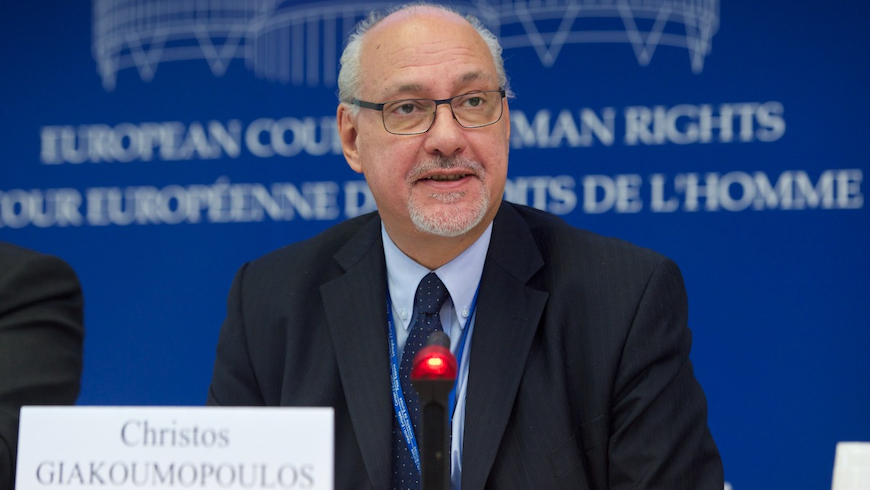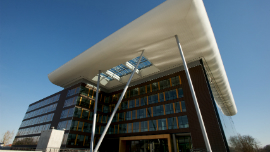Interview with Daniel Tarschys
The interview with Mr. Daniel Tarschys, former Secretary General of the Council of Europe, was taken by Ms Christina Luna Rodriguez and partly published in RIA Novosti newspaper on 28 February 2016, on the occasion of the 20th anniversary of the Russian Federation’s accession to the Council of Europe.
***
- Mr Tarschys, how was the process of Russia's accession to the Council of Europe going? What was the most difficult?
All accession processes involve dialogues with several bodies in the Council of Europe and mutual analyses of the candidate countries’ legislation and democratic practices. The Russian negotiation which I followed closely, first as a rapporteur for the Parliamentary Assembly and then as Secretary General, took four years of preparations, with several legal reforms and many expert groups going back and forth. During this period, however, Russians already participated as special guests in the Parliamentary Assembly and also in some parts of the intergovernmental cooperation. Several conventions and partial agreements are open to non-member states and Russia was, e.g., an early participant in the European Cultural Convention.
- Why were you, personally, supporting Russia's accession to the Council of Europe, why it was so important to you?
I have a life-long interest in Central and Eastern Europe and spent one semester at the Law Faculty of Leningrad University, before earning a Princeton PhD in Politics and Soviet Studies. Russia has always been an integral part of Europe and I was very encouraged to follow its reconnection with other parts of Europe in the late 80’s and early 90’s.
Russia’s accession to the Council of Europe was controversial, as was that of several other countries. There was always a discussion in the Council about the appropriate threshold: which progress should already have been achieved, and which could be left on the “to do” list with suitable follow-ups? I embraced an inclusive approach, but of course there were fundamental minimum standards to meet. Russia was considered to meet them in 1996, but nobody will contest that there has since been some back-sliding in important areas. The same holds for many other member states. The respect for human rights, the functioning of democratic institutions and the rule of law in Europe remain deficient, and have even declined in several parts of the continent. The member states do not live up to their pledges. All the more reason for the Council of Europe to persevere in its discussions about vital principles, its constructive assistance and its many-sided oversight activities.
- In your opinion, why has Russia decided to become the main payer of the Council of Europe? Was it one of the conditions of entry?
The contributions to the budget of the Council of Europe – some 0,2 percent of that of the European Union - are calculated on the basis of population size and GDP. The largest member states have among themselves agreed to pay an equal share of the sum total of all their contributions. This scheme neither increases nor diminishes the contributions of the other member states. When Russia joined the Council of Europe, it was given a free choice whether or not to join this redistribution scheme. It decided to do so, but by no means was this a condition for accession.
- Russia said that before the end of February it would transfer part of its budget contribution to the Council. What is the procedure of payments to the budget of the organization?
I have no comment on this, my knowledge of the procedure may be dated.
- What were the relations between Russia and PACE, when you were the Secretary General of the Council of Europe? Could you imagine that the Russia- PACE relationship would be as it currently is today?
PACE is a very lively part of the Council of Europe and I know from my own experience, as a member of it for ten years, that it is often mistaken for the whole of the Council of Europe. But there are other important bodies as well: the European Court of Human Rights, the Congress of Local and Regional Government, the Commissioner for Human Rights, the Venice Commission and the vast network of steering committees and expert groups. Many activities of the Council are conducted within the framework of its intergovernmental programme. Here Russia is an active participant, having signed some 80 and ratified some 60 conventions. Important cooperation also goes on within the so-called partial agreements. Russia takes part in nine such agreements, e.g. the group of cooperation against corruption (GRECO).
PACE’s remit is to deal with common European concerns, and it is an excellent forum for such discussions. Its recommendations and resolutions have often had significant impact: about half of the Council’s now over 200 conventions originated in the Parliamentary Assembly. Inter-state conflicts and internal human rights violations are also on its agenda. Every once in a while a country delegation decides not to take part in the work of PACE, but having sulked for a while in its own corner it eventually comes to the conclusion that many other questions are discussed in the Assembly that it would also like to influence.
- How has Russia cooperated with the Strasbourg Court in the first years of its membership in the Council of Europe? Were there problems with the execution of the decisions?
Implementation problems are quite common, and Russia is certainly no exception. But as countries gradually get used to the European Convention of Human Rights (ECHR), the case-law of the Court and the procedures used in the Committee of Ministers to monitor implementation, compliance normally improves a great deal. Though individual decisions often meet with strong immediate reactions in the countries concerned, mature reflection tends to pave the way to domestic legal reforms. The ECHR has turned out to be quite an influential instrument of international law.
- Could you tell me about any interesting projects or initiatives between the Council of Europe and Russia planned for 2016?
There are quite a few and I have no complete overview, but let me first of all mention the Conference on Human Rights and Biomedicine organized in Moscow on 26 April by the Russian Health Ministry and the Council of Europe. This is a dynamic field where European cooperation has evolved very strongly in recent years and where an endless flow of medical and technical innovations generate new ethical dilemmas. The Moscow conference will deal in particular with transplantation issues and the recent convention against trafficking in human organs which Russia has signed. Russia also takes part in a joint European training programme for legal professionals, targeting judges (through the Russian state University of Justice), prosecutors (through the Academy of the Prosecutor’s Office) and lawyers (through the Federal Chamber of Lawyers). Another activity conducted by the Council of Europe together with the Ombudsman and the Civic Chamber of the Russian Federation, the Presidential Commissioner for the protection of entrepreneurs’ rights and other federal entities purports to enhance the public monitoring of places of detention. And let me also mention the Council of Europe’s involvement in the training given by the European Studies Institute at MGIMO. These are but examples: the interface between the Council of Europe and its member states is so extensive and ramified that many parts of it elude even the Ambassadors in Strasbourg.
***









